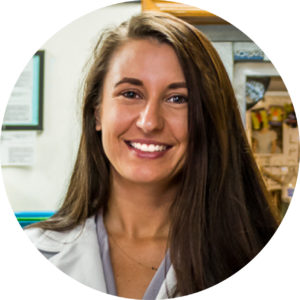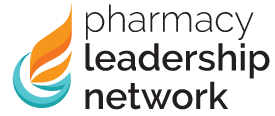 Owner and Pharmacist in Charge San Joaquin Drug
Owner and Pharmacist in Charge San Joaquin Drug
Fresno
I work as pharmacist in charge (PIC) at an independent pharmacy owned by my parents in the central valley. I graduated in 2014 and began operating the pharmacy as my own in 2015. It was a huge step for a new graduate. Every year I faced new challenges and saw myself get overwhelmed and doubting my abilities.
In 2017 I faced my most challenging event yet, a DEA audit. I felt utterly devasted and I didn’t know how I would recover. I was angry at myself and pharmacy in general. I didn’t really know where I wanted to go with my career after this happened. I had been a passive member of CPhA and happened to see an email that spoke about LDI. I thought at the time that it might give me insight into a different career path or help me gain worthwhile connections. However, it did so much more than that.
LDI not only gave me connections and opened my eyes to the exciting things happening in pharmacy but changed my whole perspective. It made me realize that I was in control of my life and it gave me the tools to deal with difficult situations. The first thing LDI did was help me figure out my values, interests, strengths, and needs (VISN). Learning these details about myself I was able to realize the career I already had aligned with my VISN. This knowledge gave me the power to take control of my life and career.
This year a week before my second LDI session, my pharmacy was burglarized in the middle of the night. This had been my fourth break in and doesn’t count the time I was held at gun point. During the LDI conference when speaking about the whole ordeal I completely broke down. I was met with warm and genuine expressions of concern from my pod mates, peers, and the organization leaders.
My inspiration for my project grew from my constant battle of being caught in the middle of the opioid epidemic. The opioid epidemic has affected almost everyone working in healthcare and while the reasons we are amid it are complicated, it is our responsibility to help address it. Although prescribing is down 10.2%, deaths due to narcotic overdose are still happening at an alarming rate. 42,000 deaths were reported in 2016 according to the CDMy idea is to take a grassroots approach to help fight the opioid epidemic. It would have to be a multifaceted approach that helped doctors and patients make the right decisions while utilizing the pharmacist’s unique ability to interact with both. Using resources readily available, pharmacists could approach patients and practitioners who show red flags. Making sure patients understand their rights, risks, and responsibilities when using opioids should be at the forefront for pharmacists. The pharmacist should be a key player in ensuring patients who are at risk of opioid overdose receive naloxone and the treatment they need. Using prescription data, pharmacists can narrow in on practitioners that prescribe high rates of opioid medication and target them for training. Making sure the practitioner sees the pharmacist as an ally in helping them provide the best and safest care for the patient is of key importance.
I feel like LDI and the connections I have made through this organization can help me reach my goals within my project and in life in general. LDI has also taught me how to handle the obstacles that will come my way and if I can’t overcome the difficulties then how to be vulnerable and grow from the failure. I would recommend LDI to anyone who wants a new and more positive outlook on life, so I imagine that’s everyone.

